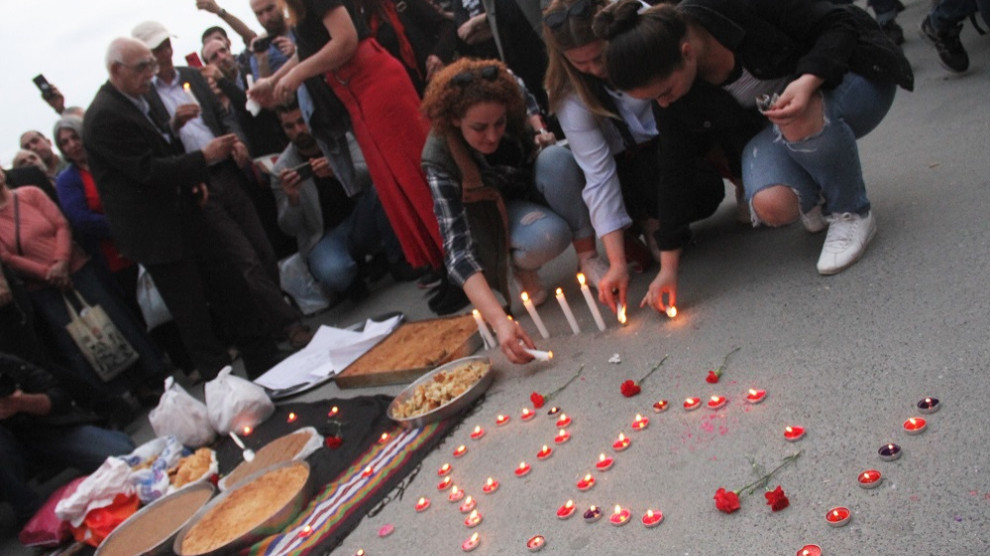Dersim Genocide remembered on 81st anniversary
4 May marked the 81st anniversary of the beginning of the Dersim Genocide. The Turkish government massacred thousands of people, those who survived were banished, Dersim was depopulated.
4 May marked the 81st anniversary of the beginning of the Dersim Genocide. The Turkish government massacred thousands of people, those who survived were banished, Dersim was depopulated.

4 May marks the 81st anniversary of the beginning of the Dersim Genocide. The Turkish government massacred thousands of people, those who survived were banished, Dersim was depopulated. The cause of these merciless acts was being Kurdish, Alevi and Kizilbash.
Alevi organizations gathered in Kadıköy on Saturday under the leadership of the Federation of Dersim Associations (DEDEF) and the European Federation of Democratic Dersim Unions (ADEF). They organized a memorial event to commemorate those who lost their lives in the Dersim Massacre.
HDP deputies Dilşat Canbaz Kaya and Ali Kenanoğlu joined the memorial at which candles were lit to write 'Dersim 1938'.
Dogan Guzel read a joint statement on the name of DEDEF and ADEF.
81 years have passed, and yet Turkey is not willing to acknowledge this Genocide like many other Kurdish Genocides. Those responsible for the deaths of thousands of people have never been tried nor have they been brought out into light. The broken families could never discover their past.
Thousands of people still haven’t received news from their families and close friends. The whereabouts of the Kurdish children taken by the Turkish Government at the time are unknown. Many other world countries who have had a similar experiences and committed genocide against its people have acknowledged the injustice and sorrow they have caused and have apologised.
However Turkey is continuing to resist and use “it does not exist” strategy with the Kurdish Genocide just as they have with the Armenian Genocide."
The military campaign against Dersim was mounted in response to a relatively minor incident, and it would seem that the army had been waiting for a direct reason to punish the tribes. One day in March 1937, a strategic wooden bridge was burned down and telephone lines cut. Seyyit Riza and the tribes associated with him were suspected. The army may have believed this to be the beginning of the expected rebellion. One Turkish source mentions that there was around the same time another minor incident elsewhere in Kurdistan and suggests coordination by Kurdish nationalists.
The first troops, sent in to arrest the suspects, were stopped by armed tribesmen. The confrontations soon escalated. When the tribes kept refusing to surrender their leaders, a large campaign was mounted. Military operations to subdue the region lasted throughout the summer of 1937. In September, Seyyit Riza and his closest associates surrendered, but the next spring the operations were resumed with even greater force. They must have been of unprecedented violence and brutality.
The number of slaughtered people ranged between 12 thousands, according to official figures, and 70-90 thousand according to the people of Dersim. More than 10 thousand people were exiled.